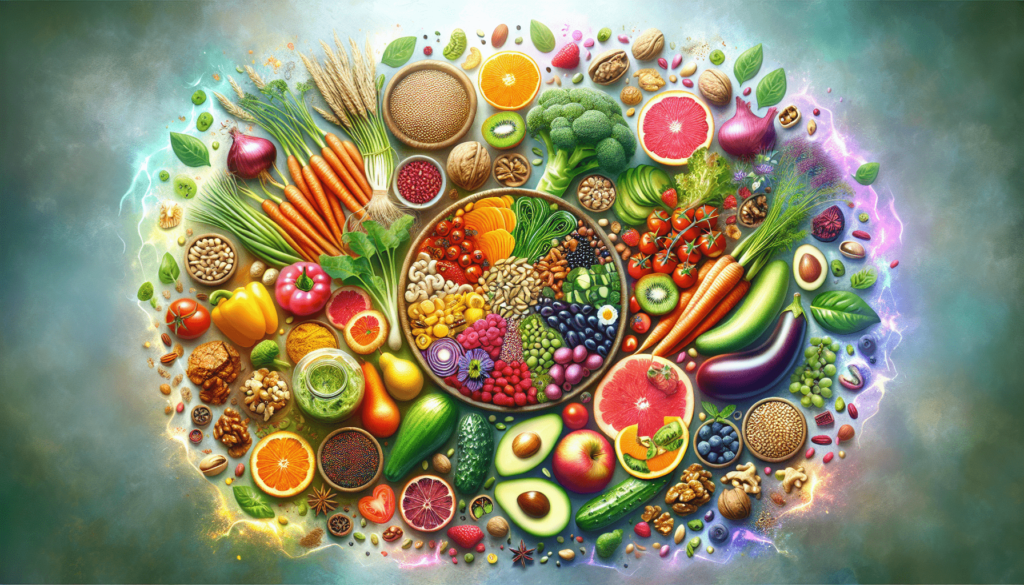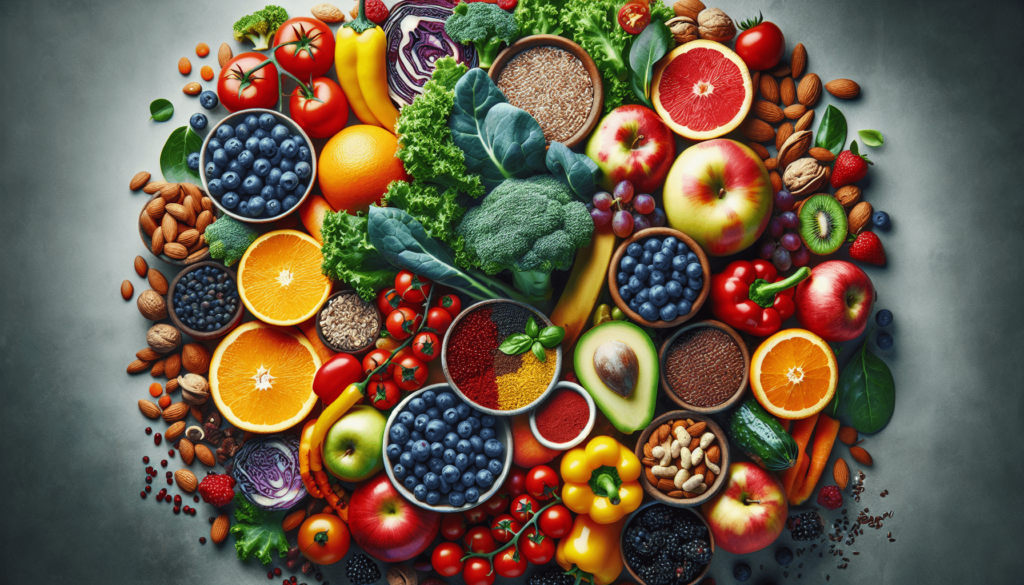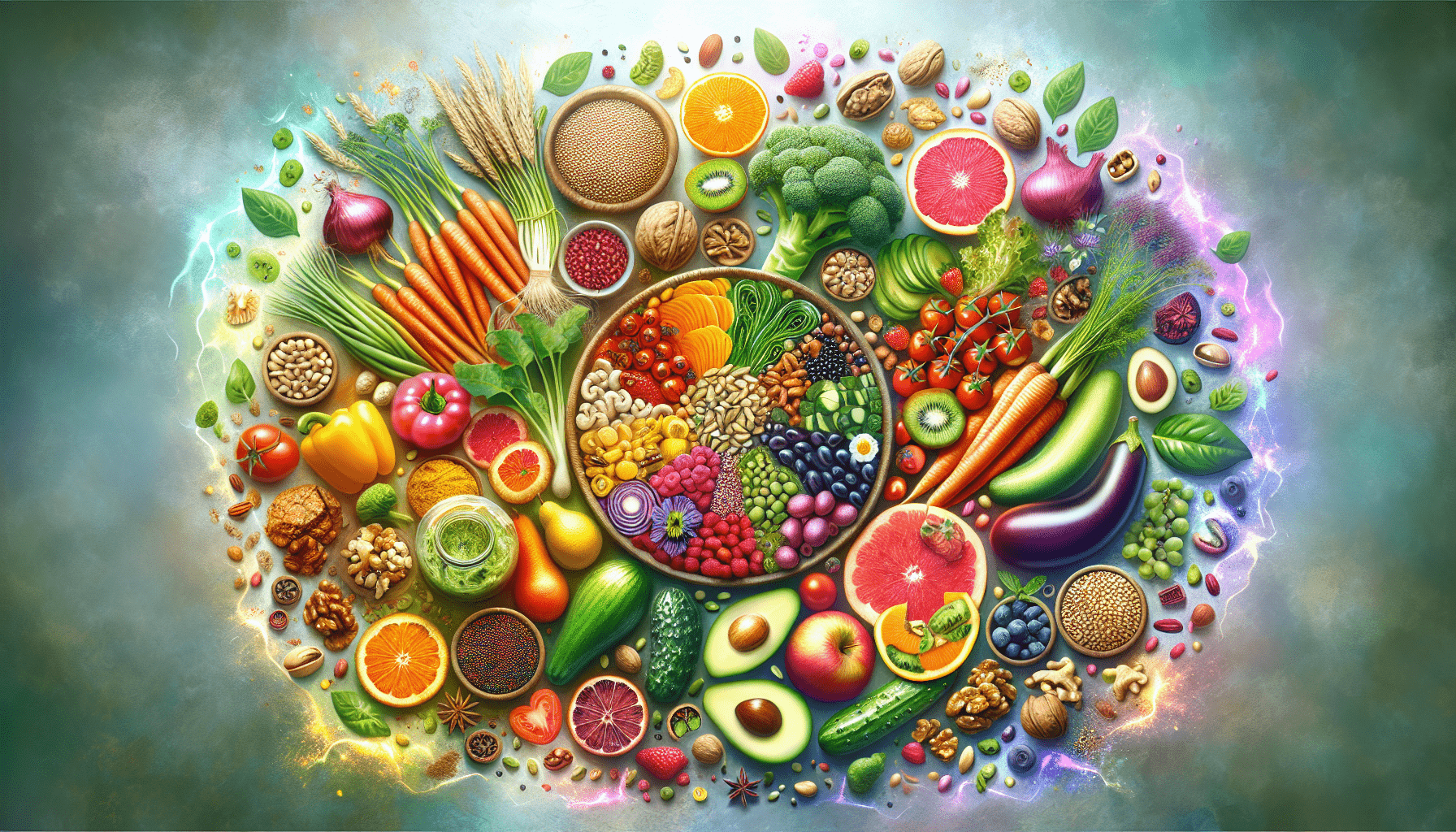What are the Benefits of Plant-based Diets?
Plant-based Diets and Holistic Health
When it comes to your overall health and well-being, what you put into your body plays a significant role. Plant-based diets, which focus on consuming foods derived from plants, such as fruits, vegetables, grains, nuts, and seeds, have been gaining popularity in recent years. These diets are not only good for your physical health but also have numerous benefits for your mental and emotional well-being.
Improved Digestion and Gut Health
By consuming a plant-based diet, you are providing your body with an abundance of fiber, essential nutrients, and antioxidants that are crucial for proper digestion and gut health. Plant-based foods are rich in fiber, which helps to regulate bowel movements and promote a healthy gut microbiome. This, in turn, can prevent various digestive issues, such as constipation, bloating, and irritable bowel syndrome.

Plant-based Diets and Weight Management
Maintaining a healthy weight is essential for overall well-being. Plant-based diets can be an effective way to manage your weight and even promote weight loss. These diets are typically lower in calories and saturated fat compared to diets that include animal products. Additionally, plant-based foods are rich in fiber, which helps you feel full and satisfied, reducing the likelihood of overeating.
Cardiovascular Health Benefits of Plant-based Diets
One of the significant benefits of plant-based diets is their positive impact on cardiovascular health. Plant-based foods are low in cholesterol and saturated fats, which are known to contribute to heart disease. By following a plant-based diet, you can lower your cholesterol levels, reduce your risk of hypertension, and protect your heart health. Additionally, the abundance of antioxidants and anti-inflammatory compounds in plant-based foods can further support cardiovascular health.

Mental Health Benefits of Plant-based Diets
In addition to physical health benefits, plant-based diets have been linked to improved mental health outcomes. Plant-based foods are rich in nutrients, such as omega-3 fatty acids, folate, and antioxidants, which are essential for brain health and cognitive function. Research has shown that individuals who follow plant-based diets are less likely to experience symptoms of depression and anxiety compared to those who consume a diet high in processed foods and animal products.
Plant-based Diets and Cancer Prevention
Cancer is a leading cause of death worldwide, but there is evidence to suggest that plant-based diets may help lower the risk of developing certain types of cancer. Plant-based foods are rich in phytochemicals, compounds that have been shown to have anti-cancer properties. By consuming a diet rich in fruits, vegetables, whole grains, and legumes, you can help protect yourself against certain types of cancer, such as colorectal, breast, and prostate cancer.
Environmental Benefits of Plant-based Diets
Not only are plant-based diets beneficial for your health, but they also have a positive impact on the environment. The production of plant-based foods requires fewer natural resources, such as water and land, compared to the production of animal products. By reducing your consumption of animal products and opting for plant-based alternatives, you can help reduce greenhouse gas emissions, preserve biodiversity, and promote sustainable agriculture.
How to Transition to a Plant-based Diet
If you are interested in reaping the benefits of a plant-based diet but are unsure of where to start, there are a few simple steps you can take to make the transition easier. Begin by incorporating more plant-based foods into your meals, such as fruits, vegetables, whole grains, nuts, seeds, and legumes. Experiment with different recipes and cooking methods to discover new flavors and textures. Gradually reduce your consumption of animal products, such as meat, dairy, and eggs, and opt for plant-based alternatives instead.
Planning a Balanced Plant-based Diet
To ensure that you are meeting your nutritional needs while following a plant-based diet, it is essential to plan your meals carefully and include a variety of foods from all food groups. Make sure to include a source of protein in every meal, such as beans, lentils, tofu, tempeh, or quinoa. Incorporate a wide variety of fruits and vegetables to ensure you are getting all essential vitamins and minerals. Include whole grains, such as brown rice, quinoa, and oats, for energy and fiber. Don’t forget to add healthy fats, such as avocados, nuts, and seeds, to your meals for essential fatty acids.
Supplements for Plant-based Diets
While plant-based diets can provide you with most of the essential nutrients your body needs, there are a few nutrients that may be more challenging to obtain solely from plant sources. It is important to consider supplementing your diet with certain nutrients to ensure you are meeting your body’s requirements. Some key supplements to consider while following a plant-based diet include:
- Vitamin B12: Found predominantly in animal products, vitamin B12 is essential for nerve function and red blood cell production. Consider taking a B12 supplement or consuming fortified foods to meet your daily requirements.
- Omega-3 fatty acids: While there are plant-based sources of omega-3 fatty acids, such as chia seeds, flaxseeds, and walnuts, it may be beneficial to supplement your diet with algae-based omega-3 supplements to ensure you are getting an adequate intake.
- Vitamin D: Vitamin D is primarily obtained through sun exposure, but it can also be found in fortified foods or supplements. Consider taking a vitamin D supplement, particularly if you live in a region with limited sun exposure.
- Iron: Plant-based sources of iron include lentils, beans, spinach, and tofu, but it may be beneficial to consume iron-rich foods with sources of vitamin C to enhance absorption. Consider discussing iron supplementation with a healthcare provider if you have concerns about meeting your iron needs.
Plant-based Diet Myths Debunked
There are several misconceptions surrounding plant-based diets that may deter individuals from making the switch. Let’s debunk some common myths about plant-based diets:
-
Myth: Plant-based diets lack essential nutrients.
- Reality: Plant-based diets can provide you with all the essential nutrients your body needs, as long as you plan your meals carefully and eat a variety of foods from all food groups.
-
Myth: Plant-based diets are expensive.
- Reality: Plant-based diets can be budget-friendly, as staple foods such as beans, lentils, rice, and vegetables are affordable and widely available. By focusing on whole foods and buying in season, you can save money while following a plant-based diet.
-
Myth: Plant-based diets are not suitable for athletes or active individuals.
- Reality: Plant-based diets can meet the protein and energy needs of athletes and active individuals when properly planned. Incorporating a variety of plant-based protein sources, such as beans, lentils, tofu, and tempeh, can help support muscle recovery and growth.
Conclusion
In conclusion, plant-based diets offer numerous benefits for holistic health, including improved digestion, weight management, cardiovascular health, mental health, cancer prevention, and environmental sustainability. By transitioning to a plant-based diet and planning your meals carefully, you can support your overall well-being and contribute to a more sustainable future. Remember to consult with a healthcare provider or nutritionist before making any significant dietary changes to ensure you are meeting your body’s nutritional needs. Embrace the power of plant-based diets and embark on a journey to better health and wellness.

